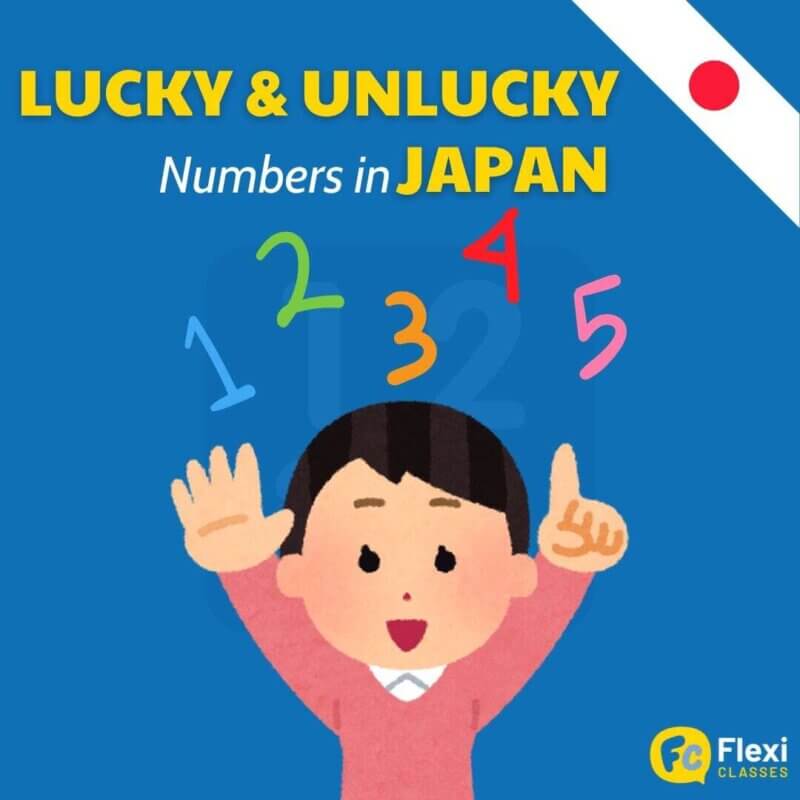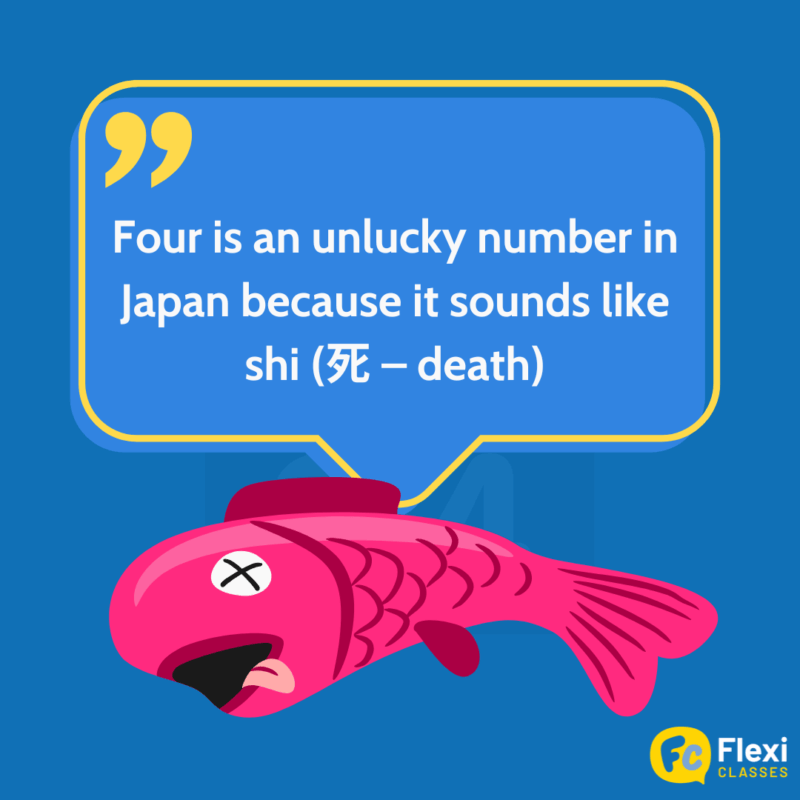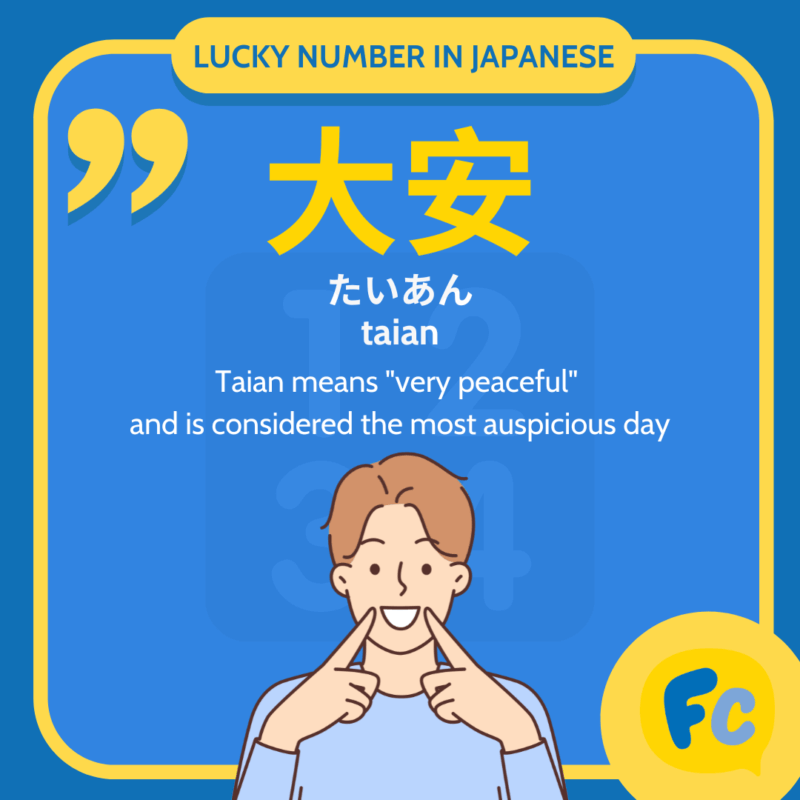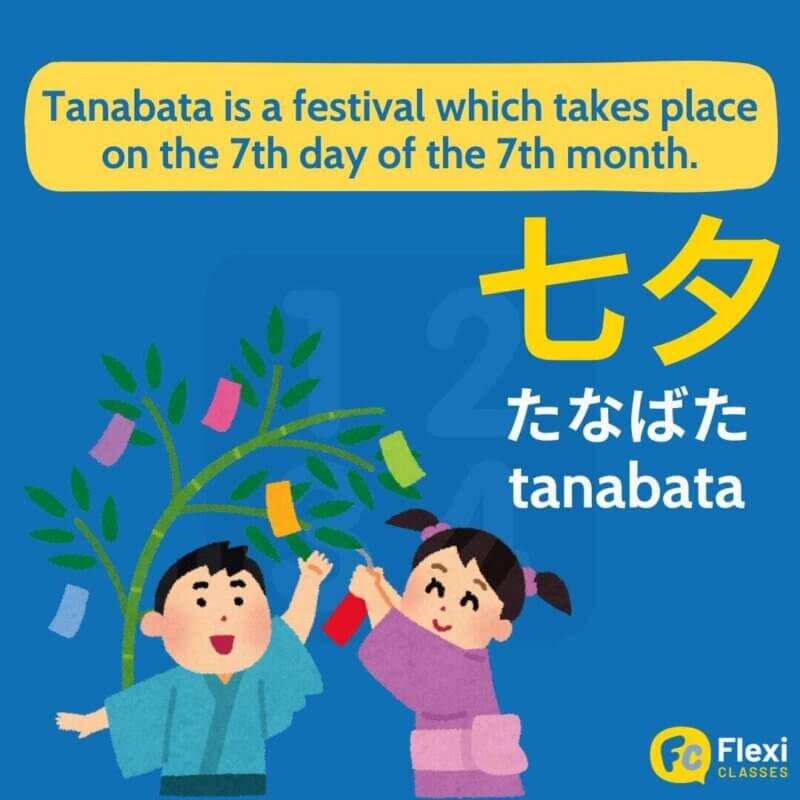Lucky vs Unlucky Numbers in Japan: A Cultural Guide
Discover Which Numbers Bring Fortune and Misfortune in Japanese Culture

Every culture has lucky and unlucky numbers. Although we don’t usually think about it, it is common for certain numbers to be liked or disliked in certain contexts.
It is very important to avoid unlucky numbers, especially when it comes to marriages, business decisions, meetings and celebrations.
Some numbers, like 4 (四, shi) and 9 (九, ku), are considered unlucky due to their associations with death and suffering.
On the other hand, numbers like 7 (七, shichi) and 8 (八, hachi) are seen as lucky, symbolizing good fortune and prosperity.
In this article, we’ll explore lucky and unlucky numbers in Japan and superstitions that are widely prevalent in Japan regarding scheduling decisions.
Lucky and Unlucky Numbers in Japan || Unlucky Number: 4
Lucky and Unlucky Numbers in Japan || Unlucky Number: 9
Lucky and Unlucky Numbers in Japan || Six Labels
Lucky and Unlucky Numbers in Japan || Lucky Number: 7
Lucky and Unlucky Numbers in Japan || Lucky Number: 8
Lucky and Unlucky Numbers in Japan || FAQs
Lucky and Unlucky Numbers in Japan || Unlucky Number: 4
The most infamous unlucky number in Japan is 4, pronounced “shi,” which is also the word for death (死 し shi)” . Because of this, 4 is considered highly inauspicious.

For example, hospitals may not have a fourth floor and may not use the number 4 in their room numbers. There aren’t many gift sets that come in packs of four.
The number 4 is sometimes avoided even in apartment and conference room numbers. The number 4 is also often avoided when it comes to numbers used on car license plates.
However, the number 4 is not always avoided.
Due to the influence of Buddhism, four particularly outstanding people are sometimes called the Four Heavenly Kings (四天王 してんのう shiten-nou). In this case, four is not an unlucky number, but is perceived positively as a unified whole like the four directions: east, west, north and south.

Japanese Numbers // Your Complete Guide (With Quiz Included)
DO NOT WORRY – learning Japanese numbers is not so difficult. Learning the numbers in Japanese can also open up some unexpected doors.
Lucky and Unlucky Numbers in Japan || Unlucky Number: 9
The number 9 is also avoided because its pronunciation “ku” is linked to “suffering (苦 く ku.)” In Japanese four-character idioms, going through great hardships is called “shiku hakku (四苦八苦 しくはっく )”.
As we will see later, the number 8 is considered to be auspicious, but the number 9 is related to this “ku” and is considered bad.
The number 9 is often avoided on car license plates when it can be combined with other numbers to create an unlucky word.
For example:
💀 “4219” can be read しにいく (死に行く) – shiniiku, which means “going to death.” “4989” can be read “shiku hakku” and is likely to be avoided.
😫 “96” can be read “kurou,” which means “苦労 くろう kurou, hardships.”
Of course, there are many people today who don’t mind such superstitious stories.
Lucky and Unlucky Numbers in Japan || Six Labels
Although the numbers 4 and 9 are considered unlucky, people today rarely avoid the 4th or 9th when deciding on a date for a celebration. When deciding on a date, the Rokuyo (六曜 ろくよう , six labels) is more important than the number of the date.
Rokuyo is an ancient calendar in which six types of days are repeated in sequence, each of which has a different fortune or good luck.
大安
たいあんtaian
Taian means “very peaceful” and is considered the most auspicious day. It is the best day for important events that you wish for success in, such as weddings, store openings, and contracts.

In Japan, many weddings are held on Taian days.
赤口
しゃっくshakku
Shakku is a day when only noon is considered auspicious, and any other time is considered unlucky. It is considered particularly unsuitable for funerals and celebrations.
It is also called an unlucky day, so it is not a very popular day.
先勝
せんしょうsenshou
Sensho means “the first to get there wins,” and mornings are considered good luck, while afternoons are considered bad luck.
It is believed that there is good luck in hurrying, so it is preferable to act early. Conversely, it is common to avoid acting in the afternoon.
友引
ともびきtomobiki
Tomobiki means “pulling friends,” and is a good day for celebrations, but is considered inappropriate for funerals.
It is believed that holding a funeral on Tomobiki will “pull your friend into the afterlife,” so crematoriums are often closed.
It is an auspicious day for weddings and celebrations.
先負
せんぶsenbu
Senbu means “the first to lose,” and the morning is considered bad luck and the afternoon is good luck.
It is said that it is best to avoid rushing and act slowly. It is believed that things will move in a good direction in the afternoon.
仏滅
ぶつめつbutsu metsu
Butsumetsu means “Buddha perishes” and is considered the most unlucky day of the Rokuyo.
It is said that it should be avoided for events starting something new, such as weddings, moving, and opening a business.
In recent years, people seem to be paying more attention to the Rokuyo than to the numbers of the date. It is almost certain that weddings will not be held on a Butsumetsu day, and it is common for other business decisions, ceremonies, etc. to also be avoided on that day.
Lucky and Unlucky Numbers in Japan || Lucky Number: 7
As in the West, 7 is considered a lucky number. The number 7 plays an important role in several traditions, such as:

七五三
しちごさんshiti-go-san
A traditional celebration for children aged 3, 5, and 7 to pray for their health and growth.
七夕
たなばたtanabata
A festival celebrating the meeting of the deities Orihime (織姫 おりひめ ) and Hikoboshi (彦星 ひこぼし ), which takes place on the 7th day of the 7th month.

Tanabata Festival たなばた (七夕) // Everything You Need To Know
Want to learn all about Tanabata, from the legend behind the festival to the food and decorations? Also want to learn Japanese vocab related to Tanabata?
七福神
しちふくじんshichihukujin
Seven Lucky Gods
The “Seven Lucky Gods” are seven gods worshipped in Japan as bringers of good fortune.
The seven gods are generally believed to be:
Ebisu (恵比寿 えびす )
Daikokuten (大黒天 だいこくてん )
Fukurokuju (福禄寿 ふくろくじゅ )
Bishamonten (毘沙門天 びしゃもんてん )
Hotei (布袋 ほてい )
Jurojin (寿老人 じゅろうじん )
Benzaiten (弁財天 べんざいてん )
And each has a different background, such as Hinduism, Buddhism, Taoism, or Shintoism.
Lucky and Unlucky Numbers in Japan || Lucky Number: 8
8 is considered a lucky number.
The number 8 is written in kanji as “八 はち ” , which widens at the bottom, suggesting something gradually increasing or getting bigger, and is therefore considered to be auspicious.
This is called “末広がり すえひろがり sue-hirogari.
“末 [soe すえ]” means “ends” and 広がり ひろがり means to widen.
A town name Suehiro-cho (末広町 すえひろちょう ) can be found in many places around Japan.
That’s all for this article. Generally speaking, in Japan, numbers are avoided if their pronunciation leads to unlucky words rather than the numbers themselves. If you pay attention to the numbers 4 and 9 and the Rokuyo, you can avoid the minimum amount of bad luck.
What are lucky and unlucky numbers in your country? Share with us here!
Lucky and Unlucky Numbers in Japan || FAQs
Why are 4 and 9 considered unlucky in Japan?
This is because 4 is associated with “shi” (death) and 9 is associated with “ku” (suffering).
Do Japanese avoid celebrating on days that include the number 4 or 9?
Superstitious people may avoid it, but normally they don’t care much about it. They care more about the Rokuyo calendar.
What is Rokuyo?
Rokuyo is an ancient calendar in which six types of days are repeated in sequence, each of which has a different fortune or good luck.
Are there any days when weddings should be avoided?
Weddings and other celebrations are avoided on days that fall under “Butsumetsu.”
Why 8 is considered lucky in Japan?
The number 8 is written in kanji as 八 はち , which widens at the bottom, suggesting something gradually increasing or getting bigger, and is therefore considered to be auspicious.
Want More From LTL?
WANT TO LEARN JAPANESE? Check out our online Japanese courses here.
We offer a 7-day free trial to all new students where you can study 24/7.
What about studying Japanese in Japan instead? We’ve got your back. Our Japanese courses in Tokyo can either be taken in small groups of no more than 5 students or individually for a more tailored experience.
We even offer incredible homestay experiences in Tokyo as well.
Come and be a part of this amazing community.










